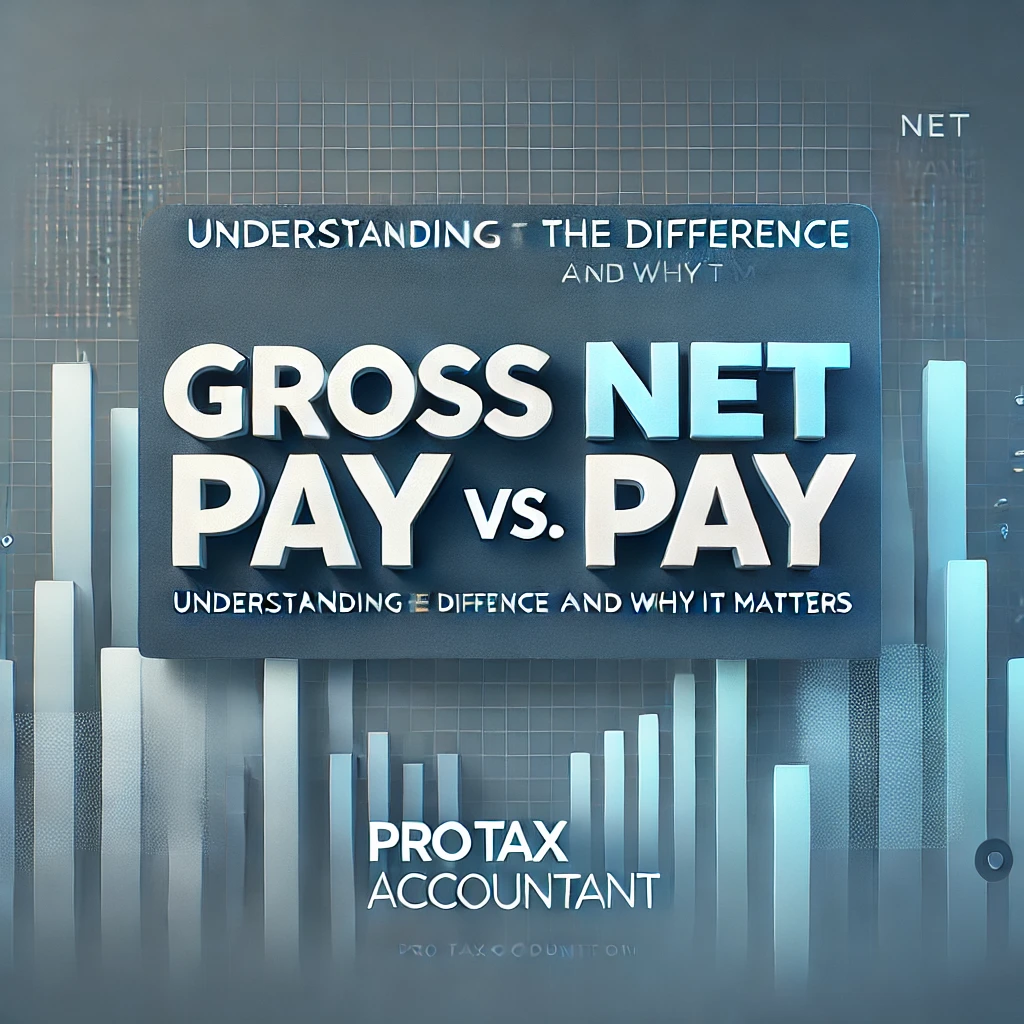When payday rolls around, most people focus on the number on their paycheck. But do you ever wonder why your take-home pay is different from the amount you were told you’d earn?
That’s where understanding the difference between gross pay and net pay becomes essential. Whether you’re an employee trying to budget or an employer managing payroll, knowing how these terms work will empower you financially.
What Is Gross Pay?
Gross pay is the total amount of money an employee earns before any deductions. It’s the headline number you see in your job offer or employment contract. Gross pay includes:
- Your agreed salary or hourly wages
- Bonuses, overtime pay, or commissions
- Other forms of compensation, such as tips or allowances
For example, if your annual salary is $50,000, that’s your gross pay. However, this doesn’t reflect the amount that lands in your bank account.
What Is Net Pay?
Net pay is your actual take-home pay—the amount you receive after deductions. These deductions include:
- Taxes (federal, state, and local)
- Social Security and Medicare contributions
- Employee benefits like health insurance or retirement plan contributions
- Other withholdings, like union dues or wage garnishments
If your gross pay is $50,000 but deductions amount to $10,000, your net pay would be $40,000.
Key Differences Between Gross Pay and Net Pay
Understanding the difference between gross pay and net pay helps with financial planning and managing expectations. Here’s a quick comparison:
| Aspect | Gross Pay | Net Pay |
|---|---|---|
| Definition | Total earnings before deductions | Actual amount received after deductions |
| Includes Taxes | No | Yes |
| Used For | Calculating taxes and benefits | Personal budgeting |
| Appears On | Pay stubs, contracts | Bank account deposits |
FAQs About Gross Pay and Net Pay
What deductions impact my net pay the most?
Taxes, including income tax and Social Security, typically take the largest chunk of your gross pay. Other significant deductions may include health insurance premiums and retirement contributions.
Can my net pay ever equal my gross pay?
It’s rare but possible, such as when no deductions are applied—for example, if you’re self-employed and not subject to payroll taxes or you’re working in a tax-free region.
How can I increase my net pay?
To maximize your take-home pay:
- Optimize benefits: Contribute to tax-advantaged accounts like a 401(k).
- Adjust tax withholdings: File a new W-4 form to align with your tax situation.
- Seek higher gross pay: Negotiate raises or bonuses.
Are bonuses taxed differently from regular pay?
Yes, bonuses are often taxed at a flat rate, which may result in higher withholding compared to your regular wages.
What tools can help me calculate my net pay?
Online paycheck calculators can provide estimates by factoring in gross pay, tax rates, and other deductions.
Gross Pay vs. Net Pay: Real-Life Impact
Let’s consider an example. Sarah earns a gross annual salary of $60,000. Here’s how her deductions break down:
- Federal Income Tax: $8,000
- State Tax: $3,000
- Social Security and Medicare: $4,590
- Health Insurance: $2,400
Her total deductions amount to $17,990. Subtracting this from her gross pay leaves her with a net pay of $42,010.
This discrepancy highlights why knowing your net pay is crucial for managing day-to-day expenses.
Why Understanding Gross and Net Pay Is Crucial
1. Financial Planning
Gross pay helps you evaluate job offers, but net pay determines what you can spend and save.
2. Tax Preparation
Knowing your gross pay is essential for filing accurate tax returns, while net pay reflects how much you’ve already contributed.
3. Transparency with Employers
Understanding payroll deductions helps employees communicate better with HR and avoid surprises on payday.
Tips for Employers
Employers also need to grasp the distinction between gross and net pay to ensure smooth payroll management.
- Be Transparent: Clearly communicate deductions to employees.
- Invest in Software: Use payroll systems to automate calculations and avoid errors.
- Stay Compliant: Regularly review tax and labor laws to ensure accurate deductions.
Conclusion
The terms gross pay and net pay may seem straightforward, but they have a significant impact on your financial life.
By understanding the differences, you can make informed decisions about job offers, taxes, and personal budgeting.
Employers can also benefit by managing payroll efficiently and fostering trust with their employees.
So, next time you glance at your paycheck, take a moment to appreciate what goes into calculating your gross and net pay—it’s a small step toward smarter financial planning!





